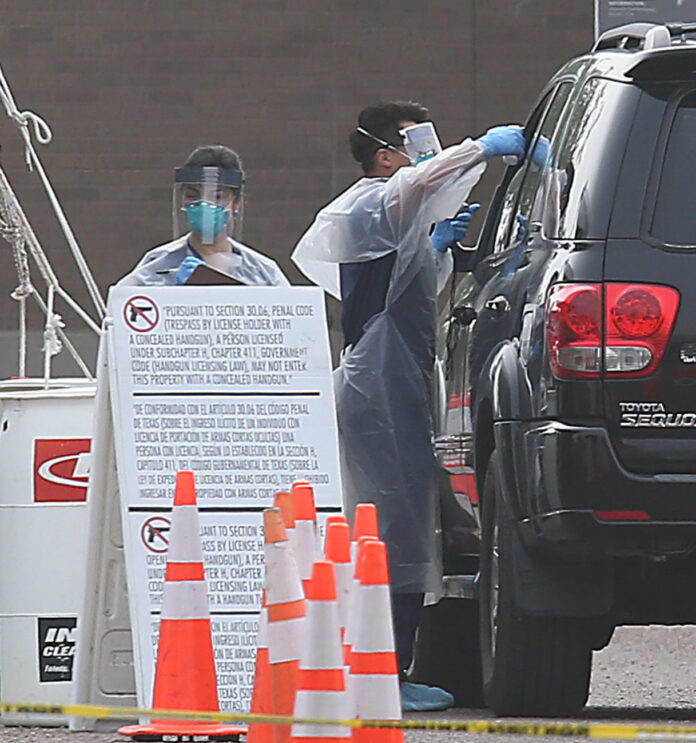The University of Texas Rio Grande Valley School of Medicine is substantially boosting the number of COVID-19 tests it’s able to process in-house from 150 per day to up to 1,000 per day.
The increase in testing capacity through the school’s clinical practice, UT Health RGV, is being made possible thanks to an automated sample-analyzing machine called the KingFisher Flex, manufactured by Thermo Fisher Scientific and housed at the school’s Edinburg headquarters, where a COVID-19 diagnostic lab was set up April 1.
Prior to the KingFisher Flex, the lab could run only 150 samples a day through a “manual extraction” process. UT Health says it’s making the resource available to local entities in the Rio Grande Valley that are also screening for COVID-19, including public and private health care institutions.
Dr. John Krouse, dean of the medical school, said it’s part of “the university’s focused efforts to bring as many resources as possible to South Texas during the pandemic.
“The school of medicine, together with UT Health RGV, will work closely with local organizations currently screening for COVID-19 to provide them the quick results needed for the communities they serve,” he said.
Cameron County reported 23 more confirmed cases of COVID-19, bringing the total number of cases as of Wednesday morning to 799, including 581 county residents who have recovered and 36 who have died. Another 631 residents are still being monitored, 240 of them having cleared the two-week waiting period for symptoms to develop and another 391 pending.
A significant portion of the county’s total cases are from two Harlingen nursing homes: Veranda Rehabilitation and Healthcare, with 32 employees and 61 residents testing positive, and 11 residents dead from the virus. At Windsor Atrium nursing home, 39 employees and 61 residents have tested positive, with 16 deaths among residents. Spanish Meadows nursing home in Brownsville has reported six employees and 11 residents with COVID-19.
As of June 1, 10,770 county residents had been tested. That’s a little over 2.5 percent of the population. The figure includes 1,449 who were tested at UTRGV’s drive-through testing facility in the county. Krouse said UT Health RGV is also working to bring antibody testing, which reveal if a person has been exposed to the virus, and contact tracing to the Valley.
“The antibody test will be very useful, as it allows us to see who has been exposed and if that person is immune to COVID-19 infection,” he said. “This is going to be crucial in terms of future developments in opening up the economy.”
Michael Patriarca, UT Health RGV executive director, said the main focus is on testing those who report associated symptoms, though residents who have reason to believe they have been exposed to the virus will receive testing as well. To be screened for an appointment to be tested at one of UTRGV’s four testing sites — in Brownsville, Harlingen, Mercedes and Edinburg, call (833) 887-4863. Patriarca said those who receive tests pay zero dollars out of pocket, insured and uninsured alike.
He said having the diagnostic lab located in the Valley cuts down significantly on the amount of time it takes to get test results back. Between 24 and 30 hours is the average turnaround time for test results from the UT Health RGV lab, Patriarca said.
The additional testing capacity, meanwhile, will be valuable if the Valley experiences successive waves of COVID-19 cases, he said, stressing that it’s very important that residents keep practicing hand washing, mask wearing, social distancing and other guidelines to prevent the spread of the virus, which can be transmitted by individuals who show no symptoms.
“The 1,000 per day is in an eight-hour shift, so we would be able to ramp that up as needed if we were to double the shifts,” Patriarca said. “That would be a reserve that we would keep in our back pocket.”
He said UTRGV is committed to being at the forefront of the COVID-19 battle for as long as necessary.
“That was really the catalyst for getting the new platform, was to allow us to stay ahead,” Patriarca said.





